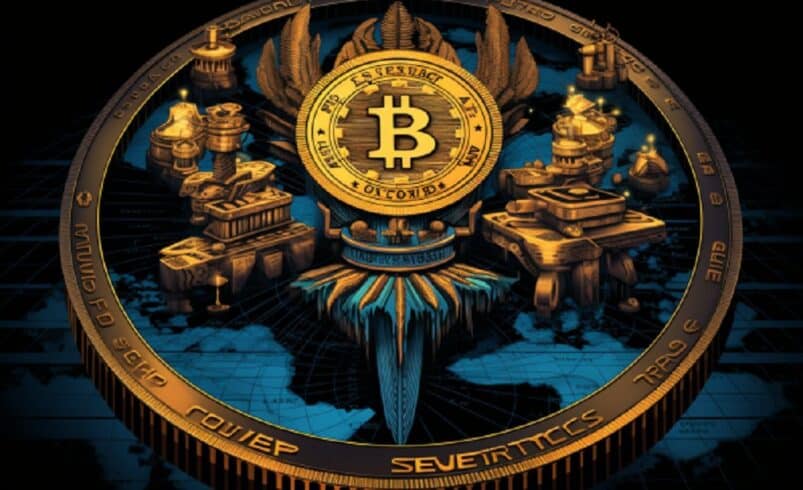A Guide to Solana DEX and Its Workings

What Is Solana DEX?
The Solana blockchain is responsible for powering the Solana DEX, or Decentralized Exchange. It makes it possible for users to trade digital assets directly from their wallets, facilitating peer-to-peer trading without the need for intermediaries.
Platforms running on Solana DEX: Raydium and Serum, make use of Solana’s effective consensus mechanism to offer quick and affordable trading experiences. The popularity of Solana DEX comes from the decentralized finance (DeFi) ecosystem because it allows users to access a variety of tokens easily, add liquidity to pools, and participate in decentralized finance activities.
What Are The Known Features Of Solana DEX?
High Data Rate
The high-performance blockchain Solana is renowned for its quick transaction times. Its distinct Proof of History (PoH) consensus process helps ensure a swift and safe transaction finality.
Minimal Transaction Expenses
Solana’s effective consensus algorithm reduces the amount of computing power needed to validate transactions, which accounts for its low transaction fees.
What Are The Key Solana DEX Platforms?
1. Serum
Based on Solana, Serum is a decentralized ecosystem and exchange. With order books, sophisticated trading tools, and a range of tradable assets, it offers a permissionless and non-custodial trading experience.
2. Raymond
Raydium is a blockchain-based Automated Market Maker (AMM) that runs on Solana. It enables users to earn fees in exchange for providing liquidity. By integrating with the Serum DEX, Raydium improves trading options and liquidity.
How Does Solana DEX Work?
1. Wallet Integration
To access Solana DEX platforms, users need a wallet that is compatible with Solana, such as Phantom or Sollet. These wallets enable communication with decentralized applications (DApps) and safely store private keys.
2. Selection of Assets
Users can select from a variety of assets on the DEX once they’re connected. Several tokens, including native Solana tokens and projects developed on the Solana blockchain, are frequently listed on Solana DEX platforms.
3. Investment
Trading interfaces are provided by Solana DEX platforms, enabling users to place limit or market orders. Transparency and security are ensured by smart contracts on the Solana blockchain, which carry out these orders.
4. Provision of Liquidity
On sites such as Raydium, users can contribute liquidity to decentralized liquidity pools. Users can increase the platform’s liquidity and receive trading fees by contributing assets to these pools.
Why Use Solana DEX?
1. Minimal Fees
Because of its low transaction costs, Solana is a desirable choice for traders—especially when compared to other blockchain networks.
2. Velocity: Speedy Transaction Time
Because of Solana’s high throughput, transactions can be confirmed quickly, giving users a smooth trading experience.
3. Interoperability
Numerous tokens are frequently supported by Solana DEX platforms, demonstrating the diversity and interoperability of the Solana blockchain ecosystem.
What Are The Known Problems With Solana DEX?
1. The Learning Curve
When using Solana DEX platforms, users who are not familiar with Solana or decentralized finance (DeFi) may encounter a learning curve.
2. Hazards in the Market
Users should be aware of potential risks, such as price volatility and smart contract vulnerabilities, as with any financial market.
3. Learning Curve
Because Solana DEX platforms can have unique features and terminologies, users who are not familiar with Solana and Decentralized Finance (DeFi) may find themselves having to learn their way around.
Conclusion:
What’s The Market Share Of Solana DEX So Far?
The Solana DEX market share is progressive; hence, it can be traded up to 28% and 39% in a normal trading time. With a market capitalization of $23,110,859,030 (according to CoinMarketCap), Solana DEX has shown strength in November, exceeding $3 billion in trading volume, and $210 million Total Value Locked (TVL).
Top DEXs like Raydium and Orca also saw some significant growth of up to 70% in November. Solana DEX had emerged as the third biggest blockchain to be traded in terms of trading volume, exceeding Ethereum, which traded $9.97 billion, and Arbitrum, which also traded $4.49 billion within November.
DISCLAIMER: It's important to know that the stories on this blog are not meant to serve as, nor should it be construed as, advice in legal, tax, investment, financial, or any other professional context. You should only invest an amount that you are prepared to lose, and it's advisable to consult with an independent financial expert if you're uncertain. For more information, kindly consult the terms of service and explore the assistance and support areas provided by the issuing or advertising entity. Our website is dedicated to accurate and unbiased reporting, but it's important to note that market circumstances may change rapidly. Additionally, please be aware that some (but not all) articles on our site are sponsored or paid posts.













